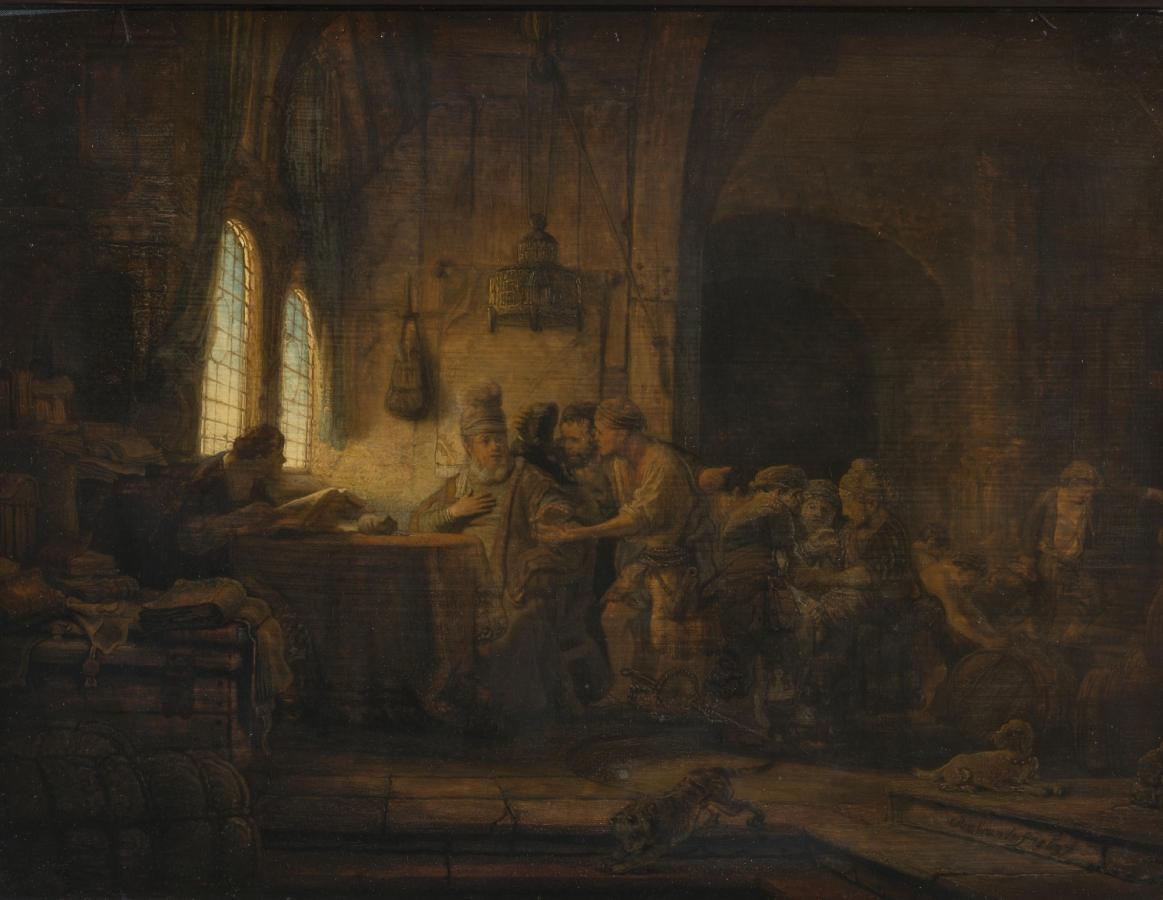The Parable of the Labourers in the Vineyard, found in the Gospel of Matthew, chapter 20, verses 1-16, presents a profound meditation on justice, grace, and the very nature of work within the Christian ethos. This brief narrative, though simple at first glance, resonates with complexities that reverberate through theological discourse and ethical consideration. Within its concise framework, one can unravel layers of meaning, as well as significant implications for understanding God’s kingdom and human labor.
At the heart of the parable is the vineyard itself, an emblem of God’s kingdom—vibrant, fruitful, and inviting. Within this sacred enterprise, the master exemplifies divine authority, demonstrating an enigmatic disposition towards justice and generosity. From the early morning, he hires laborers, promising them a fair wage for their day’s toil. Yet, as the narrative unfolds, the master’s dealings with later arrivals confound typical expectations of equitable remuneration and provoke reflections on grace and reciprocity.
The hirelings, first called to labor at dawn, represent those who adhere to a conventional understanding of justice—reward corresponding to effort and commitment. This expectation is juxtaposed against the master’s increasingly radical generosity. When he hires others at various hours and promises to pay them equally, a sense of disquiet stirs among the first workers. Herein lies a crucial tension: the intersection between human expectations and divine grace. As the story progresses, the master’s willingness to pay all laborers the same wage regardless of their hours creates a picturesque scene of unease, altering the very parameters by which justice is conventionally assessed.
As the day wanes, the master’s decision not only raises eyebrows but ingrains a poignant metaphor within the context of inclusive grace. The workers who labored all day perceive themselves as the rightful recipients of greater recompense, a sentiment rooted deeply in human notions of justice. Yet, the master counters, challenging the prevailing ethos of meritocracy by reminding them that they received what was promised—a reflection of the rigid system that often fuels resentment and misunderstanding. “Are you envious because I am generous?” he questions, disrupting not merely the workers’ assumptions but imploring readers to reconsider their own definitions of entitlement and worth.
This parable breathes life into the interplay between justice and grace. The master, embodying the divine nature, subverts human calculations of equity and transcends the limitations of human wisdom. In the kingdom of heaven, grace is not a currency distributed by human effort but a lavish outpouring of divine love and mercy. The message, profound and transformative, brings to light the boundless nature of God’s generosity, suggesting that those perceived as last may very well be first in the eyes of the divine. Such a revelation could alter the very essence of communal relationships, urging believers to cultivate attitudes of appreciation and gratitude rather than entitlement and jealousy.
Furthermore, the notion of work itself merits exploration in light of this narrative. The vineyard symbolizes not only a physical realm for labor but also a spiritual terrain where faith and action intertwine. Christian theology often espouses a profound respect for labor as an instrument of divine mandate. Work, in this perspective, is not merely a means to earn a living but a sacred calling, echoing the Creator’s intention for humanity to steward the earth. Each laborer in the parable, regardless of their hour of arrival, is engaged in this divine enterprise, tasked with contributing to the vineyard’s flourishing.
The parable also wonderfully elucidates the transcendent value of grace over performance. The workers hired at the eleventh hour, who contributed minimally in comparison to their counterparts, nonetheless share equally in the fruits of their labor. This denotes a radical inclusion that challenges the prevailing sentiments around effort as the key determinant of worth. Indeed, grace allows for an asymmetrical distribution of rewards—a central tenet of Christian faith. It calls believers to reevaluate their approach to not just their relationship with God but also with their fellow beings. The acceptance of grace is antithetical to meritocratic ideologies, urging individuals to realize that value is not derived from labor alone but from the generosity of God, who earnestly desires the salvation of all.
Moreover, conversations surrounding labor often intersect with broader societal dynamics. The parable invites reflection on contemporary labor relations within a world where economic disparities are pervasive. Those laboring in vocations that are underappreciated may find kinship with the workers hired last; their contributions, though less visible in traditional hierarchies, are no less vital. The narrative encourages the community of believers to extend grace towards those who toil in the shadows, advocating for a more equitable and compassionate society that mirrors the ethos of the kingdom described in the parable.
In conclusion, the Parable of the Labourers in the Vineyard unfolds as a rich tapestry, interwoven with themes of justice, grace, and labor. It challenges adherents to embrace a vision of divine generosity that transcends human expectations, urging individuals to see value and worth beyond mere productivity. In its exploration of labor as sacred and transformative, the parable not only elucidates the character of God but also reshapes human relationships to reflect equity and inclusion. Just as the master extends grace to all, so too must communities strive to embody love, understanding, and appreciation for every individual engaged in the sacred task of laboring in the vineyard. Within this framework, the parable serves not merely as a narrative but as a clarion call—a reminder that in God’s kingdom, the first shall be last, and the last shall be first, unveiling a friendship with grace that redefines all understanding of justice.



